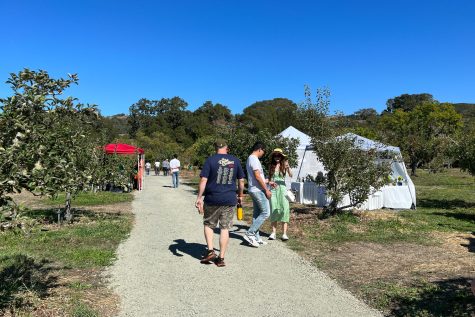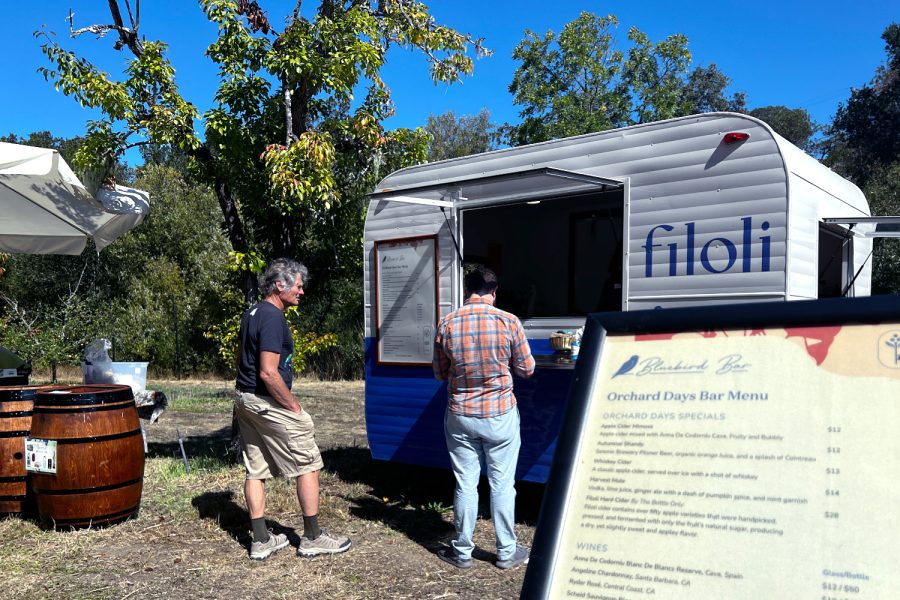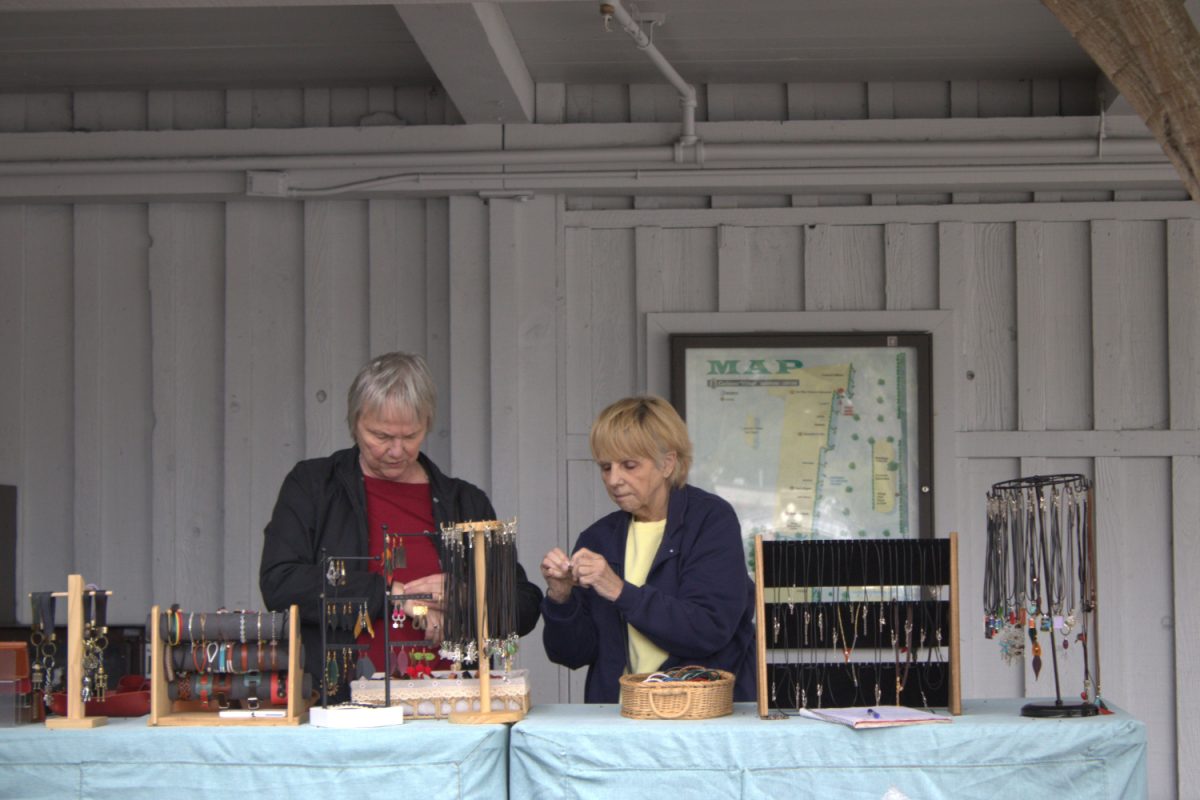The Filoli Gardens learning team unlocks an exclusive part of the property for October’s Orchard Days event.
Filoli Gardens has opened its orchard for the public’s enjoyment every October weekend for the past three years. Through this, the learning and engagement department hopes to educate the public about agriculture and the various flowers and plants within the traditional gardens.
Known as the Gentleman’s Orchard, it is found off the side of the parking lot and down a small trail. Within the orchard, grapes, apples, walnuts, and bees are all cultivated to add further value and color to the property. The bees bring additional benefits to the property by pollinating the crops to allow the plants to flourish further.
Erika Frank, the director of learning and engagement at Filoli Gardens, made Orchard Days more distinguished from the other events hosted at the gardens, such as Holiday Lights.
“Orchard days is a really special time. It’s unique because it is an area of the estate that is closed to the public for the rest of the year. This means that visitors can on the weekends, sit underneath the walnut trees and enjoy a refreshing drink and have social time,” Frank said.
In addition to providing entertainment to their audience, Frank and her team strive to educate the public about the inner workings of food production and wildlife in California through Orchard Days and their exhibits.
Becky Quigley and Laura Gehl brought their families to enjoy the orchard for the Orchard Pollinator-themed week. Sitting under the shade of a large walnut tree, the two families enjoyed music and drinks as their kids played nearby.
“This is my first time attending Orchard Days. Becky recommended we attend and we’ve had a lot of fun so far. The kids have gotten the chance to learn about the importance of bees in the orchard and play around. The adults and I can relax and have some drinks in the fresh air,” Gehl said.
By allowing children to touch the fruits and vegetables as they grow physically, Quigley and Gehl hope that children will learn the importance and imperfections of agriculture and appreciate their privilege. Furthermore, as autumn rolls around, both understand the level of honesty and forthcomingness of Filoli Garden’s exhibits and Orchard Days displays.
“If you contrast Filoli with some of the pumpkin patches you will see along El Camino or Half Moon Bay, those are very commercialized with pony rides and pumpkins all nicely lined up on tarps. With those, you don’t get to see the products being grown, so being able to understand how the food is grown and realizing that not every delicious apple looks like the apples at Trader Joe’s is really important to us,” Gehl said.
What’s more, Quigley believes that her children’s future can better adapt to climate change through their experiences at Orchard Days.
“It shows kids that you can grow things yourself. You can have your garden, and produce the food that you need, which is important, especially with climate change and food insecurity,” Quigley said.
Additionally, through the differently-themed weeks, Frank hopes to acknowledge the diverse heritage of the Bay Area and share some of the Bay Area’s rich history and cultures.
Frank hopes people can connect deeper with the gardens and their lifestyle by acknowledging cultural diversity.
“It’s really important to us that visitors when they come can see their heritage and culture represented,” Frank said. “The connection of harvest celebrations to culture is perfect for an orchard.”
From Oct. 15 to Oct. 16, the Gentleman’s Orchard will feature Sukkot, Diwali, Mehregan, and the Mid Autumn Festival, with the help of community organizations.
“There’s a lot of divisiveness in the world right now. Having something that’s educating and bringing people together to understand other cultures is definitely necessary,” Gehl said.
Along with educational displays and stations, Frank’s team has organized local artists to display their art per the week’s theme. Kelly Jane and her companion Lynne Millar created a display for the week of the Orchard Pollinators.

“We were told the weekend would have a ‘pollinator’ focus, so we chose to bring art to display that had a general floral theme – since bees enjoy getting nectar from flowers,” Millar said. “Both Kelly and I feel a deep emotional connection to flowers and the many themes one can express through them. Hence, the theme of pollinators fits perfectly for us.”
The organization of the artists, stations, and displays takes multiple months for Frank and her team. Since its inception, event planning has begun in the springtime. Therefore, Frank and the rest of the learning department must reach out early to arrange dates and themes.
Nevertheless, Frank encourages local artists and organizations to participate in making each year better than the previous. Ideally, Frank and her team would like to be contacted via email at learning@filoli.org for opportunities for next year’s event.
By keeping the structure of the event loose, the impact, learning, and entertainment change every year, giving visitors unique opportunities to experience the property in various ways.
“It’s just a new way to be together with family and friends. Whether it’s relaxation for the afternoon, learning something that you find really interesting, or even just seeing where food is grown,” Frank said.























